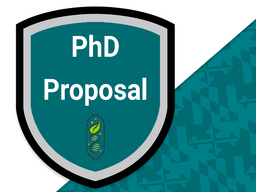PhD Proposal: Kelsey Gray
Location
The Commons : 318
PhD Proposal: Kelsey Gray – Online Event
Date & Time
April 30, 2024, 1:00 pm – 2:00 pm
Description
Kelsey Gray, PhD Student
Location: Common 318 & WEBEX
Advisor
Dr. Mark Marten
Developing a systematic genetic approach to create sustainable materials from filamentous fungi
ABSTRACT
Plastic waste is ubiquitous and rapidly accumulating, which poses a significant threat to our environment. In contrast, mycelial materials, or materials made from filamentous fungi, are capable alternatives to these plastics due to their compostability, independence from petroleum and innate mechanical strength. Because of these traits, mycelial materials are already commercially available as replacements for leather, packing material, and building insulation. Unfortunately, mycelial materials have some limitations on their mechanical properties, restricting the number of scenarios where they could be appropriate substitute materials. In addition, mycelial materials are typically designed through inefficient trial and error efforts, focused on changing the growth environment (e.g., substrate or conditions) or the fungal species used. While this approach has had marginal success, we propose a new, rational, approach that will allow more significant changes and rapid design. Our central hypothesis is that fungal genotype can be used to alter resultant mycelial phenotype, leading to mycelial materials with different mechanical properties: Genotype → Phenotype → Material Properties. Supporting this hypothesis, there is some evidence that changing fungal genotype can result in mycelial materials with different mechanical properties. Furthermore, there is a wealth of evidence showing that changes in a fungal genotype can lead to changes in resultant phenotype. However, there is almost no data detailing how different phenotypes impact mechanical properties of mycelial materials Our research will explore the relationship between some commonly observed phenotypes and mechanica properties of resultant mycelial material. Our specific hypotheses are that mycelial materials made from strains that:
(i) do not undergo developmental processes (i.e., only produce hyphae)
(ii) have higher tip formation and germination rates
(iii) have increased surface adhesiveness between hyphae
will produce mycelial materials with increased elasticity and tensile strength (two specific mechanical properties) compared to our wild type strain. To test these hypotheses, we will acquire (or generate) multiple, single-gene deletion mutants that lead to the same phenotype. This process will be used (i) to create “fluffy” (i.e., no developmental structures) and non-fluffy mutants and (ii) high/low-rate tip forming mutants. In addition, the adhesiveness in our biofilm (iii) will be increased by co-culturing two >different mutant strains, each with an added complementary, ultra-high-affinity protein. These proteins will bind to each other, enhancing the adhesiveness of the biofilm. The bonding between proteins will be confirmed through fluorescent microscopy. The phenotype for each mutant will be confirmed and characterized through scanning electron microscopy (SEM) imaging and/or coverslip assays (to determine tip forming rates). All these mutants will then be utilized to generate mycelial material. For each material, the mechanical properties will be characterized through a tensile test, revealing elasticity and tensile strength. The resulting data will reveal the impact of each phenotype on the mycelial material's mechanical properties. Our results are expected to quantitatively highlight which of these phenotypes influence mechanical properties most significantly, eventually leading to the ability to create materials with specific mechanical properties.
Agenda
- 12:55 pm: Meeting room will open
- 1:00 pm: 45-min presentation will be open to the public with Q&A.
- Followed by a closed session with the committee and PhD Student.
WEBEX Meeting for virtual attendance
